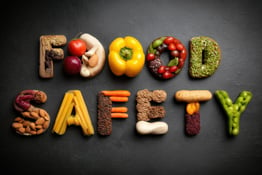Running a restaurant is already a balancing act, but when it comes to HR compliance for restaurants, the stakes get even higher. From wage and hour laws to employee documentation, one mistake can lead to costly fines – or worse, lawsuits.
That’s why many operators are turning to HR compliance software and modern restaurant HR software to take the guesswork (and manual work) out of compliance.
Dan Durkin, technology consultant at Back of House, shares his expert take on where operators struggle most and how technology can help restaurants stay compliant while saving time and money.
The Compliance Minefield
Restaurant compliance can feel overwhelming, especially when laws vary across locations. “The biggest compliance headaches typically revolve around wage and hour laws, and includes everything from properly calculating overtime and tip credits to managing paid breaks and meal periods,” Dan says. “The nuances of these laws, especially with varying local, state, and federal rules, can feel like a minefield.”
Documentation is another frequent pain point. “Proper documentation for hiring, training, and employee termination is critical,” Dan says, explaining that getting that paperwork wrong can leave a business highly exposed in a legal dispute.
And then, he highlights that local labor laws further complicate operations. “A change in minimum wage or a ‘Fair Workweek’ ordinance can completely disrupt your existing labor model and scheduling practices. You suddenly have to re-evaluate every position's pay, ensure schedules are posted with enough advance notice, and track last-minute changes to avoid fines.
“Without a system to manage these new rules, it’s a constant battle of manual adjustments, which is prone to error and a huge time suck.”
When asked where operators struggle most, Dan emphasizes scheduling and documentation. “If I had to pick just one, it's a tie between scheduling and documentation. Scheduling is where the rubber meets the road. It directly impacts payroll, breaks, and overtime. One simple scheduling mistake, like a minor working a shift that's too long, can lead to a violation.”


Subscribe to Our Monthly HR & Staffing Newsletter
Find solutions for hiring, scheduling, and retaining top talent in today's competitive market.
He acknowledges that the struggle with documentation is that it's often seen as a low-priority, back-office task. “But when an issue arises, the lack of proper records – from I-9 forms to training logs and signed handbooks – can be the difference between a minor issue and a costly lawsuit.”
He also notes that while training is vital for customer experience, there is limited government oversight. “Training is the most important thing that we do with our teams that has the most direct impact on the customer. Except for basic safety, hygiene, and alcohol service, there’s not much government oversight from a compliance perspective in how we train our staff.”
How Technology Simplifies Compliance
Technology is helping restaurants take human error out of the compliance equation. A well-designed platform can handle routine tasks automatically, freeing managers to focus on operations.
Automating HR Tasks
A robust HR tech platform can handle multiple compliance tasks at once. Dan says, “A good HR tech platform can automate or simplify time and attendance, payroll processing, onboarding, scheduling, and documentation.”
Smarter Time and Attendance
Modern time-tracking software ensures compliance with labor rules at every location. Time-tracking software is built with compliance in mind. It can be configured with specific labor rules for each location.
For instance, “If an employee is nearing their maximum hours for the week or is about to miss a legally mandated meal break, the system can send an automatic alert to a manager’s phone,” says Dan. “Some advanced systems even use geofencing to prevent employees from clocking in or out from off-site, eliminating ‘off-the-clock’ work disputes.”
Digital Onboarding and Record-Keeping
Digital onboarding and cloud-based record-keeping make HR processes faster, more accurate, and easier to audit.
As Dan puts it, “This not only makes the process more efficient but also creates an immutable, timestamped digital record.” By storing everything securely in the cloud, restaurants can quickly access any document needed for audits or legal inquiries, eliminating the risk of lost or misplaced paperwork.
Real-World Examples of Avoiding Mistakes
Technology can prevent costly compliance errors, even across multiple locations. Dan recalls a large restaurant group that implemented a unified HR platform to manage varying paid sick leave laws. “The system automatically tracked accruals and sent alerts to both managers and employees, effectively eliminating the risk of a violation and saving thousands in potential penalties,” he says.
He also points out smaller-scale wins. “Another example is a small, independent restaurant that used a scheduling app with built-in minor-labor law checks. It prevented a manager from accidentally scheduling a 16-year-old for a shift that was too late, averting a potential child labor law violation and a serious fine.”
Bridging HR with Food Safety and Insurance
Compliance extends beyond payroll and scheduling, and restaurant HR software can help bridge the gap between HR, food safety, and insurance.
Food Safety Training and Certifications
Modern HR and learning management systems make tracking training and certifications simple.
Dan says of their value, “These platforms create a clear, audit-ready record that can be presented to health inspectors, proving your commitment to safety.” Automatic reminders and progress tracking ensure that employees stay up to date with mandatory food safety requirements.
Insurance and Worker’s Comp Documentation
Digital documentation platforms also help keep insurance and worker’s compensation records current.
“You can upload and store insurance policies, worker's compensation records, and other certifications.” Dan says. “Crucially, you can set up automated alerts to notify you well in advance of a policy's renewal date. This prevents a lapse in coverage, which is a significant risk for any business, especially one with a physically demanding environment.”
Getting Started with HR Tech
For restaurants just beginning to adopt compliance-focused technology, Dan recommends starting with the areas of greatest risk.
Start with the Biggest Pain Point
For small restaurant operators, the key is to tackle the area that causes the most headaches, whether it’s payroll or scheduling.
Dan advises starting with a simple system to handle these tasks, noting that it “will immediately improve accuracy, automate tax filings, and give you a digital record of hours worked.” Once that’s in place, operators can expand into scheduling and digital onboarding.
Why Cost Isn’t the Obstacle
Investing in HR compliance software is less about expense and more about reducing risk. As Dan points out, “The real ROI isn't just in the time saved on admin work – it's in the avoided legal fees, fines, and reputational damage.”
Even a single wage or overtime violation can easily cost more than a full year of a compliance-focused platform, making the investment a smart business decision.
Looking Ahead
Compliance requirements are expected to become more complex in the coming years, with increasing scrutiny at local, state, and federal levels.
More Complex, Localized Laws
Dan notes that more cities and states are likely to implement Fair Workweek and predictive scheduling laws, while data privacy will become a bigger focus as more employee information is stored digitally.
AI-driven tools are also on the rise, helping with labor forecasting and flagging potential compliance issues before managers even notice them.
He explains, “The trend is toward more scrutiny and more localized, complex laws… We’ll also see more AI-driven solutions that help with things like labor forecasting and even flagging potential compliance issues before a manager even sees them.”
Data Privacy and Gig Economy Scrutiny
Operators should also pay attention to predictive scheduling laws, data privacy regulations, minimum wage and tip law changes, and gig economy scrutiny.
Dan highlights these trends:
- Predictive scheduling: “More laws mandating how far in advance schedules must be posted and requiring 'clopen' pay or extra pay for last-minute changes.”
- Data privacy: “Regulations around how employee data is collected, stored, and used.”
- Minimum wage and tip laws: “Continued debates and changes to minimum wage and tip credit laws in different localities.”
- Gig economy scrutiny: “Increased regulatory focus on how to classify delivery drivers and other gig workers.”
For restaurants, the takeaway is clear: compliance challenges aren’t going away. With the right restaurant HR software, operators can protect their business, reduce risk, and save valuable time.
As Dan sums it up, the real ROI “isn't just in the time saved on admin work – it’s in the avoided legal fees, fines, and reputational damage.”
Book a Consultation
Ready to simplify HR compliance and protect your restaurant from costly mistakes? Book a consultation with Dan or another Back of House consultant to see how HR compliance software and restaurant HR solutions can save you time, reduce risk, and keep your business running smoothly.





